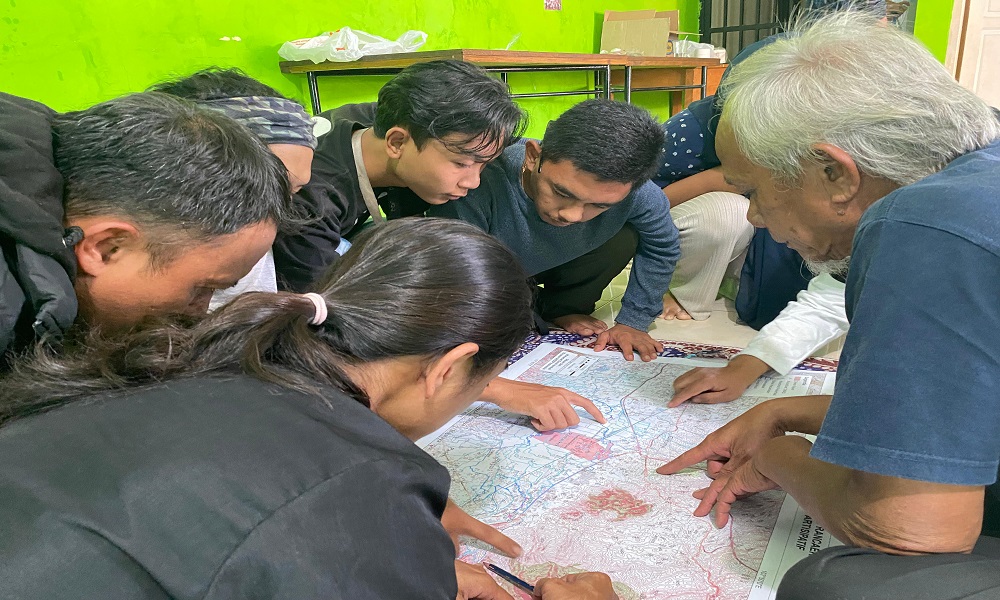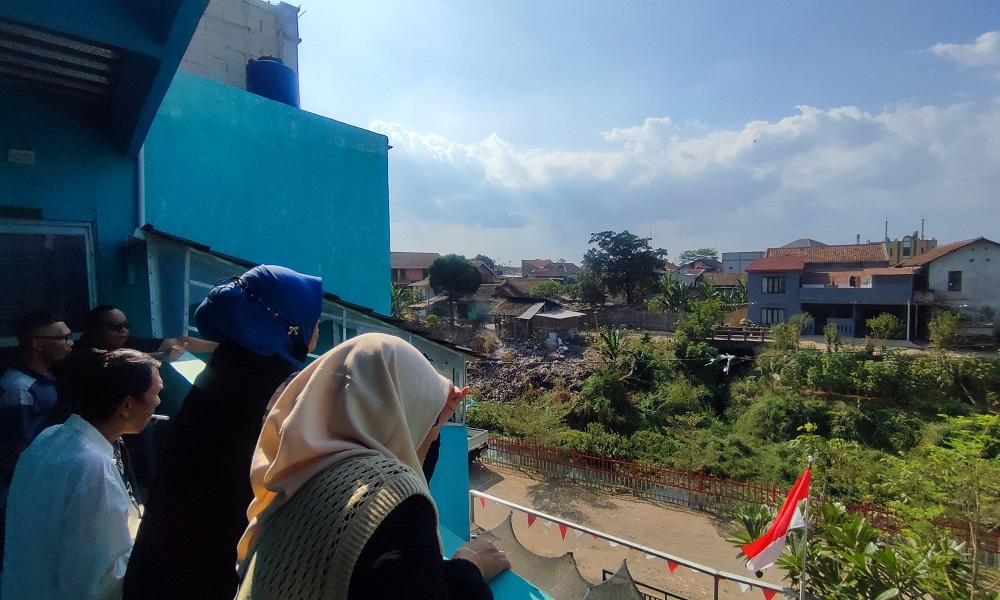
Siaga Warga Rancaekek (SWR) and Tanginas communities conducted a joint learning activity about the importance of water catchment areas and the condition of the rivers that cross their area. The two communities, which were independently formed by the community to carry out climate change adaptation efforts, practiced to map the water catchment areas in Rancaekek and Baleendah, and identified changes that occurred in the rivers, including the impact on the community.
From the mapping results and discussions, both SWR and Tanginas found that the three main rivers-Cikijing, Citarik, and Cikeruh had experienced a significant decline in environmental quality. Human activities such as land use change, deforestation, and waste pollution play a major role in these changes.
Cikijing River; the Cikijing River, which used to support a healthy ecosystem, has now experienced a decline in quality due to loss of vegetation, land use change, and accumulation of waste, which has caused drought and difficulty in accessing clean water for the community. The Citarik River, which was originally 6 meters wide and 6 meters deep, has now narrowed to 4 meters due to deforestation, sedimentation, and pollution, resulting in reduced animal life, flooding, drought, and loss of food sources for the community. Similar to the Cikijing and Citarik rivers, the Cikeruh River, which was once wide and deep, is now narrowed and poses an increased risk of disease for the surrounding communities due to pollution.

From these three rivers, it is clear that the pattern of environmental damage due to deforestation, land use change, sedimentation, and waste pollution is a problem that must be addressed immediately. These conditions threaten the welfare of surrounding communities with direct impacts in the form of water shortage, flooding, and increased risk of disease.

This finding serves as a warning and encouragement for both communities to immediately take concrete actions in river conservation efforts, replanting vegetation in upstream areas, and better waste management; more broadly, this finding also serves as a trigger for all stakeholders in Bandung district to synergize and collaborate between the community, government, and other stakeholders in an effort to restore the condition of the river ecosystem and ensure the sustainability of water resources for future generations. This activity is still part of the Participatory Early Warning School and is a follow-up to the learning related to monitoring weather changes and also the use of appropriate technology for early warning systems.

